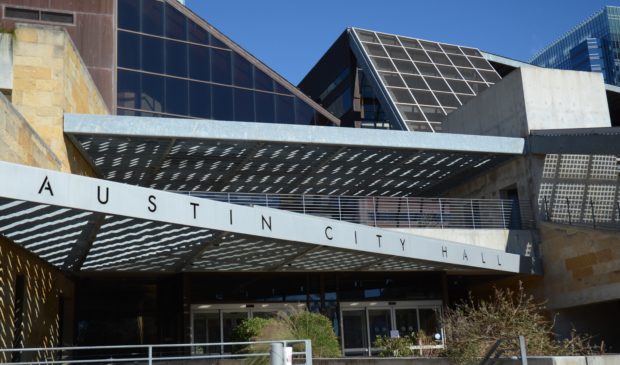Staffers offer a preview of FY 2020 budget
Wednesday, May 27, 2020 by
Nina Hernandez The Austin Health and Human Services Committee heard a budget update Tuesday morning that included news of how the Covid-19 pandemic is affecting the city.
“We were projecting a balanced budget for FY 21,” Deputy Chief Financial Officer Ed Van Eenoo said. “But we did have some gaps in the out years that we were projecting. But in the short term, it looked pretty good.”
Then Covid-19 hit.
“And we had to simply shut down large portions of our economy,” he said. “It’s impacting our sales tax collection, our mixed drink taxes, and user fees and fines.”
Balanced budgets had been forecast for fiscal years 2020 and 2021. Now the shortfall could be anywhere from $38.3 million to $57.6 million in Fiscal Year 2020.
The Budget Office has run the numbers and estimated what the shortfalls will be by source and depending on whether there is a rapid resolution or a slower resolution to the pandemic.
“Out of prudence, we are continuing to work” as though the resolution will be a slower one, Van Eenoo said.
The city has already seen a $36.7 million decline in Hotel Occupancy Tax, a $68.1 million decline in airport revenue (related to parking fees, landing fees and concession revenue), and an $8.9 million decline in Transportation Department parking fees.
The city has started work to mitigate the effect on the budget. That includes a hiring freeze on 600 vacant positions and reductions in discretionary budget line items, operational efficiency improvements, homelessness services performance framework and social service contract review, and Strategic Direction 2023 program alignment.
“Departments are going through their budgets to find ways to reduce discretionary expenses as much as they can,” he said.
He emphasized that City Council will have to make tough decisions on issues such as employee wages and building new fire stations.
“All these things need to be reconsidered in light of the change in our revenue picture,” he said.
Van Eenoo said that under Gov. Greg Abbott’s emergency disaster order, the city’s property tax cap of up to 8 percent is allowable for the next two fiscal years. The city can also limit the number and amount of fee waivers it offers.
The city also has its healthy General Fund reserves. Before the crisis, the city had stockpiled a higher General Fund reserve than is required by ordinance. That’s a good thing, notes Van Eenoo.
“The General Fund reserves are going to be part of the blueprint for how we survive this trying time,” he said.
The city’s yearly budget process is already well underway. On May 8, departments submitted their budget proposals to the Budget Office. On July 13, City Council will hear a presentation of the proposed budget. In late July, they’ll conduct public hearings and on Aug. 12, the full budget and tax rate will be up for a vote.
Photo by John Flynn.
The Austin Monitor’s work is made possible by donations from the community. Though our reporting covers donors from time to time, we are careful to keep business and editorial efforts separate while maintaining transparency. A complete list of donors is available here, and our code of ethics is explained here.
You're a community leader
And we’re honored you look to us for serious, in-depth news. You know a strong community needs local and dedicated watchdog reporting. We’re here for you and that won’t change. Now will you take the powerful next step and support our nonprofit news organization?









